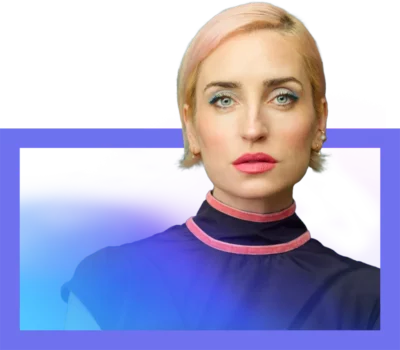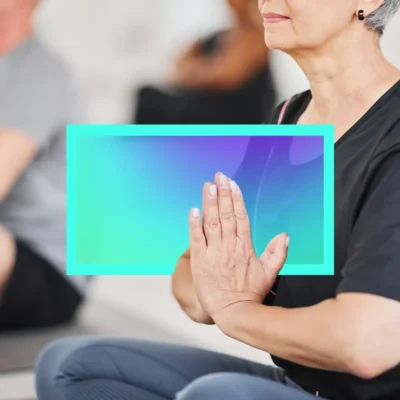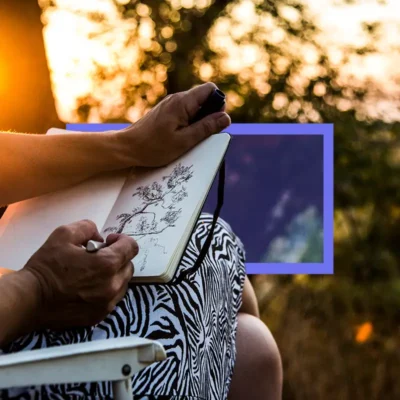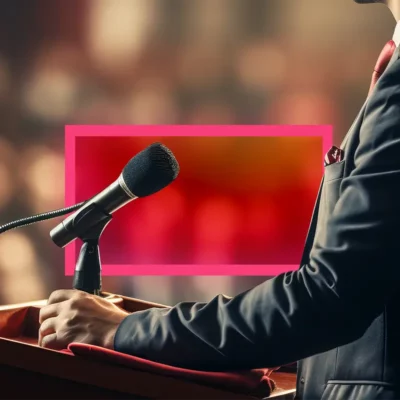Finding your voice when you need it the most
Growing up, actress, writer, and director Zoe Lister-Jones admires her mother’s confidence and her willingness to stand up for what she believes. But as a shy kid that’s wary of the dangers in the world, Zoe isn’t sure she’ll ever be able to use her voice the same way. It’s not until she’s confronted by a dire situation that Zoe learns her self confidence can come from difficult circumstances, as long as she’s willing to trust her individual voice.
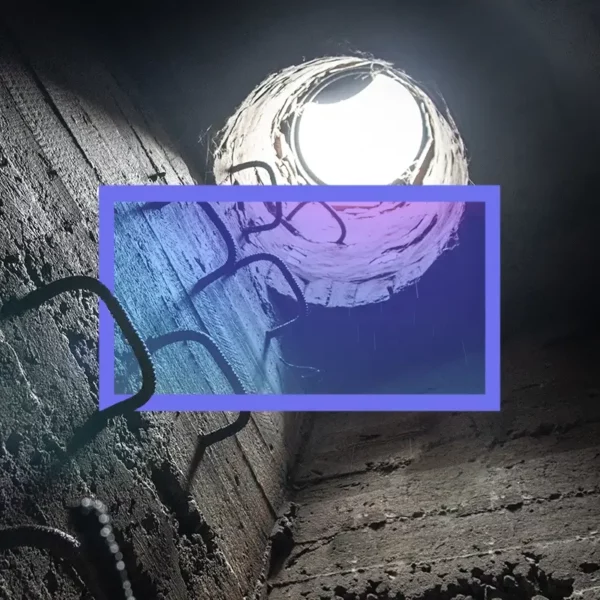
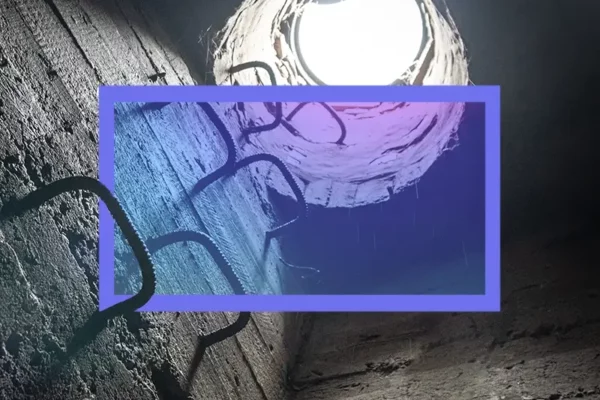
Table of Contents:
Transcript:
Finding your voice when you need it the most
ZOE LISTER-JONES: We walk as one mass of humanity through the inky dark of the tunnel, moving as quickly as we can. We become a community. I’m amazed by how we look out for one another. I can’t see much at all, but I smell the metal rails. All of us hope that no trains come. We hope we’ll all get through this safely. One step at a time.
ROHAN GUNATILLAKE: Many of us have someone we admire for their confidence — for their ability to speak their mind without hesitation. For actress, writer, and director Zoe Lister-Jones, that person is her mother. Growing up shy and wary of the world around her, Zoe is uncertain if she’ll ever have the chutzpah she sees in her mom. It’s not until she finds herself in a dire situation that Zoe realizes self confidence can be born out of difficult circumstances. You just have to be willing to trust in your unique voice.
We’d also like to let you know that today’s episode includes a few moments which some may find stressful. A disturbance in a house of worship, an incident in the New York subway. They are all part of Zoe’s journey. So, please take care while listening.
In this series, we combine immersive first-person stories, breathtaking music, and mindfulness prompts so that we may see our lives reflected back to us in other people’s stories. And that can lead to improvements in our own inner lives.
From WaitWhat, this is Meditative Story. I’m Rohan, and I’ll be your guide.
The body relaxed. The body breathing. Your senses open, your mind open, meeting the world.
LISTER-JONES: The gallery space in Lower Manhattan is a big, white room with high ceilings. My father’s large photographic prints hang on the walls. Black and white swirls of shadow and light. The air smells like a mix of perfume and leather and cigarettes. The room is buzzing with life for tonight’s opening.
I’m six years old and clinging to my mother’s leg for dear life. I’m painfully shy. And my mom is so magnetic. I just want to be wherever she is.
I wear leopard-print stretch pants, a black and gold polka dot shirt and a black beret. My Mom chooses my outfits. They’re always a statement. She’s an artist too. She works in video.
Safely behind her, I gaze out into a sea of adult legs.
I do my best to catch fragments of conversations: heated debates about the state of the art world. Whispered gossip about which artist will have the next solo show. I try to soak it up, like a sponge.
I’m the only kid here, which is fine by me. I don’t know how to be social with other kids. Whenever I’m taken to a wedding or a bar mitzvah, I dread having to sit at the kids table. There’s screaming, grabbing, it’s just a frenetic energy. I don’t know where my voice fits in. I just end up going silent.
I’d so much rather be with the grown ups. It’s easier there to be quiet and hide and observe.
I feel myself yawning. I try to hide it in my hand. I don’t want to go home yet.
My mom stands above me, speaking emphatically to two other artist friends. I watch her hands as she gestures in the air. She speaks fervently about gender inequality, politics, injustice. “Women painters don’t achieve any level of real success until they’re in their seventies,” she says. My mom is known for her chutzpah — her self confidence and audacity. Her friends vehemently agree, giving voice to their own feelings with passion.
I want to be able to use my voice like they do. But I don’t know if I can.
Fifteen of us sit around the long dining room table. My grandma and grandpa, aunt, uncle and cousins, great-aunts and great-uncles, my parents, and me. I fidget with my fork and knife. The adults fuss over where to put the Manischewitz. I’m 10 years old, at a Passover Seder with my mother’s extended family.
A giant Seder plate sits in the center of the table. It’s covered in ritualistic totems of the holiday: the lamb shank bone, a roasted egg, horseradish, parsley.
All of these items are familiar to me, but the setting isn’t. I’m used to celebrating Passover with my parents and their friends back home in Brooklyn. But this year, we’re in Calgary, Canada, at my grandmother’s sister’s house.
My grandfather opens the Maxwell House Haggadah, and begins to bless the first glass of wine. Over the course of the night, there will be many.
As the Seder progresses, we get to the Ten Plagues. A few seats down, my mom clears her throat and says she has something she wants to share. Everyone seems a little surprised. I feel nervous.
You see, we’re already the black sheep. My mom is the only person in her family to have left Calgary, and she didn’t just leave, she moved to New York to become an artist and raise a kid in the city. People here seem to look down on that. And Mom is so outspoken. She pokes holes in any ideology she doesn’t believe in.
I always agree with what she’s saying. But, whenever we’re visiting this more conservative side of the family, I’m keenly aware of the discomfort they feel around her. The simmering tension under the surface.
Shifting in her seat, Mom says she’s brought a supplement to the Haggadah — the prayer book that tells the story of Passover. Instead of the traditional ten plagues, her Haggadah is a feminist version that has the ten plagues for women in it. She takes out a printed piece of paper and turns to me. I hear grumbles around the table.
“Zoe, will you read these for us?” she asks, handing me the paper. “Why me?” I think. I hate speaking in front of people. Mom recently put me in acting classes to combat my shyness, but it doesn’t work. I’m terrified every time I have to get on stage.
I take a deep breath and look around the table. Suspicious eyes stare back at me. The paper trembles in my hands. Mom gives me an encouraging nod. I start to read through the plagues while everyone listens in a tense silence. I manage to get to number six: “Boils are what women get when we’re sick to death of doing it all.”
Suddenly, there’s a loud slam from the far end of the table. I recoil. The dishes rattle. I look up and see my great uncle, face red with anger. He stands violently. The legs of his chair scrape the floor. “This is bullshit,” he yells, and storms out of the room.
A tense silence follows. For a while, no one at the table makes eye contact. Standing there, paper still shaking in my hands, I feel scared and embarrassed and confused. Did I do something wrong? These weren’t even my words. I start to feel like there’s a danger in using my voice, and maybe it’s safer to just keep quiet.
GUNATILLAKE: This is a difficult moment. Notice how your body is responding to it and if it brings to mind a time when you felt similar discomfort. A time of fear, embarrassment and confusion. It’s okay. We can breathe with it now, soften its edges. In the difficult moments which shape our voice, we can choose to practice balance as well as kindness towards ourselves.
LISTER-JONES: The evening light shines through the stained glass windows. The sacred space fills with a soft glow. We’re on the top floor of an old, two-story brick building in Park Slope, Brooklyn — our synagogue. I sit with my parents in the front row of pews near the bema — the stage with the arc where the holy scriptures are kept behind a velvet curtain.
Our Rabbi finishes her reading from the Torah. She signals the cantor to begin a song, and the whole congregation joins in. I’m captivated by the collection of voices singing in unison. It sounds both mournful and hopeful. A warmth floods the inside of my being. I start to sing.
Singing alone terrifies me. But it’s a lot less scary to sing in a community. I don’t feel that intense shyness. My voice is just one voice in a chorus of so many. But I’m not lost in it. I’m emboldened by it.
I look around at the other people. I see handcrafted, custom talisim and individualized yarmulkes with everything from rainbows to Grateful Dead symbols on them.
Our synagogue is definitely progressive. We have a woman rabbi and a woman cantor. There’s a lot of focus on gender equity in the services. On gender neutral God language; replacing He and Him with God. King with Ruler. Jewish tradition is rooted in asking questions. And here we are empowered to challenge authority. Much of that tone is set by my mom, who’s the Synagogue president.
When the last notes of the music die down, there’s a noise at the back of the room. I turn to see the entryway door open. I see a group of men gathered in the hallway. An uncomfortable feeling fills the air. No one is quite sure what’s happening.
Recently, the basement of our building was rented out to an Orthodox Jewish congregation. From the moment they move in, there’s some discord. They disagree with how we choose to practice Judaism. They stop paying rent. It’s become a very intense environment. Now, members of this community are interrupting our service.
Quietly, they begin to chant. It quickly turns to shouting: “Down with the Upstairs. Down with Ardele! Down with Ardele! Down with Ardele!”
That’s my mom’s name.
Is this going to escalate to something more dangerous? Something violent?
I look up at my mom. Her face is pale, and her jaw is tight. I see in her eyes something that I don’t see very often: fear. It’s a rare moment where my mom feels mortal. Penetrable. Like with my great uncle, I see how being outspoken is a double-edged sword. I see a direct pipeline from using your voice to silence and shame.
But despite my mom’s fear, she stands strong. And so does the rest of the congregation. Eventually, the chanting dwindles and dies out. The angry men go back downstairs, leaving a vacuum of toxicity in the space behind. Everyone is visibly shaken.
I look at my mom’s face again, and I see that already something has shifted in her. I’m reminded that she never lets these moments of silence last very long. She responds with action. In a few weeks, she files a lawsuit against the Orthodox congregation and eventually kicks them out. Even at this age, I admire her fearlessness and moral certitude. It informs everything she does. My mom shows me that I can be loud, that I should be loud.
But I don’t have the confidence to embody that. Maybe because my mom is always so able to.
It’s 2am and I’m riding the F train from Manhattan to Brooklyn. I stare out the window into the flipbook of tunnel graffiti. I’m 19 years old, a sophomore at New York University. It’s 2001, only a few months after 9/11.
My train pulls into the York Street station. It’s pretty empty this late at night. The subway car doors slide open. And suddenly, I hear a loud explosion.
Panic surges through me. I don’t know what’s happening and I’m not going to wait around to find out. I get off the train as quickly as possible. We all do.
My body merges with a group of passengers running to the end of the platform in search of an exit. Maybe 75 people. Our feet punch the cement. Our warm bodies bunch together. Oh no. There’s no exit at this end of the station. I turn around. The exit is back where the explosion came from. And the station is filling with smoke.
I scan the crowd and see someone who works for the New York City subway. She looks just as confused as the rest of us. I ask her what we should do. And she looks at me blankly. “There’s no plan for this,” she says.
My eyes and throat burn from the smoke. I’m scared. Growing up in New York, I’ve seen a lot. Danger is ever-present in a big city. My nervous system is accustomed to protecting myself. To brace, cope, and move on. But I can’t turn away from this. I’m trapped in it.
Suddenly, amidst the fear, the vulnerability, a voice starts to rise up in my chest.
“We need a plan. What is our plan?” I’m loud. I’m firm. Eyes fall on me. I’m not trying to be a hero. I’m just asking questions because somebody needs to. Standing here, surrounded by fear, I don’t feel silenced, or lost. I feel emboldened. We need to figure this out.
My questions inspire other people to ask questions. We start talking. We form a plan. We decide to jump onto the tracks and walk to the next station. It’s scary, but we’re in this together.
People are looking to me as we help each other down to the rails. “Everyone, please take it slow!” I say. “We can’t trample each other, and nobody touch the third rail!”
We walk as one mass of humanity, through the inky dark of the tunnel, moving as quickly as we can. We become a community. I’m amazed by how we look out for one another. I can’t see much at all, but I smell the metal rails, and I feel the bodies around me. All of us hope that no trains come. We hope we’ll all get through this safely. One step at a time.
Then, we see the literal light at the end of the tunnel. A manhole has been opened for us. We run towards it and climb up until we’re each pulled out onto the street. There are medics there, waiting with oxygen masks. It turns out it wasn’t even a terrorist attack — just a track fire.
It’s so good to breathe the night air. To see the lights of the city.
Standing out on the street, I don’t really know what to do with myself. I don’t want to call my mom and wake her up. Somewhere in all this chaos, I suddenly feel grown up. I spent so much of my life feeling shy, admiring other people’s confidence, but fearing what would happen if I ever found my own. But down in that tunnel, there was no hesitation. I spoke up. I prodded others to do the same. I became active in the face of something scary. I find my chutzpah.
GUNATILLAKE: Let’s use Zoe’s story as an invitation to remember a moment in our own lives, when we or someone we know led by speaking up. Let that moment come here and energize our body. If that moment came from difficulty, let’s recognize that difficulty can be a spark to finding our voice. Our chutzpah.
LISTER-JONES: I’m sitting at a paint-splattered table in a loft that is both an art studio and an apartment space. The room smells like turpentine. There are stretched canvases everywhere and cans with brushes in them. My parents are separated and my dad has been subletting a room here with his girlfriend. I feel emotionally devastated, but not about that.
A year-long relationship with my first real love has ended unexpectedly. My heart feels like it’s been shattered into a million pieces. I’m pinned to the spot by heartache. I stare down at a blank page on my computer screen. I’ve recently graduated from NYU as a theater major. I have no idea where to go or what to do. I feel trapped.
But I’ve felt trapped before.
I start to write.
Fingers against the keys. One word at a time. I give my feelings voice.
My one-woman show is born of necessity. It’s my lifeline. I speak everything I’m feeling about heartache through the voices of different characters. I use them to expel the intolerable feelings in me, or at least work through them. I have them ask the questions that I’m asking myself and then I listen to hear how the characters answer. I write about heartache until the personal becomes universal. This is the place that I write from — the place where even when it’s scary, I have no choice but to say what feels true.
When the script is written, I rent a space to perform it. On stage, standing alone in front of the audience in a dark room, I’m filled with fear. But I bury it. Or channel it. I use my voice to speak my truth to a room full of people, and experience a profound catharsis. It’s a communal, sacred act. It’s terrifying, but also transformative. Transcendent.
Something like this didn’t seem possible when I was younger. As the scared, shy girl in acting class, the quietest one at the kid’s table, I never thought I’d have the confidence to perform on my own. In my own words. I didn’t have my mom’s strength. I didn’t have her voice.
But as I get older, I know that my confidence doesn’t come from using someone else’s voice. It comes from finding my own. And sometimes, it’s only in those really difficult moments, when things are scary or things are hard, that we find the trust to use our voice. To ask questions. To challenge the authorities we want to challenge. That confidence to express ourselves, to say what needs to be said, comes about when we need it the most. When we’re deep underground in the darkness, and all we need is a light.
Rohan’s closing meditation
GUNATILLAKE: Thank you Zoe. For our meditation today, we’re going to do a form of visualization together.
Let’s start with your face soft, and your hands, let them be soft too. However your body is, know it as it is.
Across different meditation traditions, there is a long history in the practice of visualizing someone other than yourself and then embodying their qualities. So that is the kind of thing we’re going to do today.
And we’ll start with someone in our life who has the kind of chutzpah that Zoe describes in her mother, and that eventually she finds for herself, in her own way.
It might even be a memory of that person in a particular moment. A moment when your person was being awesome. Awesomely themselves.
Smile.
Whether your mind is visual or like mine, not so much, enjoy what it’s like for the thought, the concept, the image of them, to be here with you.
I’m remembering my sister speaking at my father’s funeral. It was a difficult time for all of us, but she spoke so well. It was amazing. An inspiration that I connect with now through my memory. Her qualities of bravery, of vulnerability, and of humor in the words she shared.
Your person in your mind. Which qualities of theirs inspire you? Name them to yourself.
And embody these qualities now. However that makes sense to you. Follow your instinct, you can’t do this wrong.
Imagining the qualities of your chosen person, and embodying them now. Using the visualization of others to inspire qualities in ourselves.
Okay. Now we’re going to something similar, but different.
Instead of visualizing or bringing to mind a person in your life, the invitation is to bring to mind someone you don’t really know, but really represents for you the chutzpah so well represented in Zoe’s story. The confidence to act and speak even when things are difficult.
It could be a public figure, it could even be a fictional or mythical character. What matters is that this person is the personification of chutzpah as you see it.
Take your time. And invite them here. Invite them to be present. Who is here with you? Visualize them and their qualities. Talk to them if you like.
And as before, let’s take on their qualities. Embodying their qualities. Putting them on like a coat.
And for however might make sense for you, try being them. Becoming your character or figure. Becoming them.
Looking through their eyes. Inhabiting everything about them. Being them.
Okay, breathe out as we move to the close.
Letting all of that previous visualization go. And just be yourself. Be yourself in your body. Be yourself in the movements of your mind. Know what it is to be you right now. Embodying yourself.
Being yourself. Being that which knows yourself.
So thank you Zoe. And thank you. May the chutzpah be with you.
We’d love to hear your personal reflections from Zoe’s episode. How did you relate to her story? You can find us on all your social media platforms through our handle @MeditativeStory. Or, you can email us at: [email protected].

